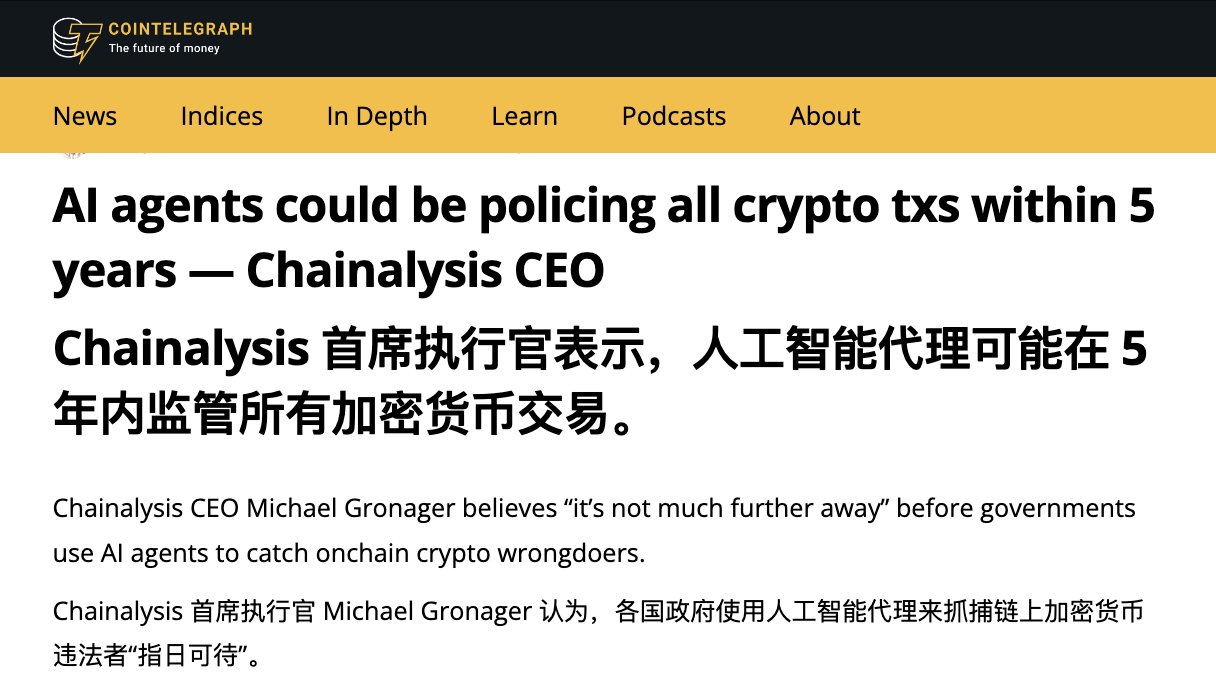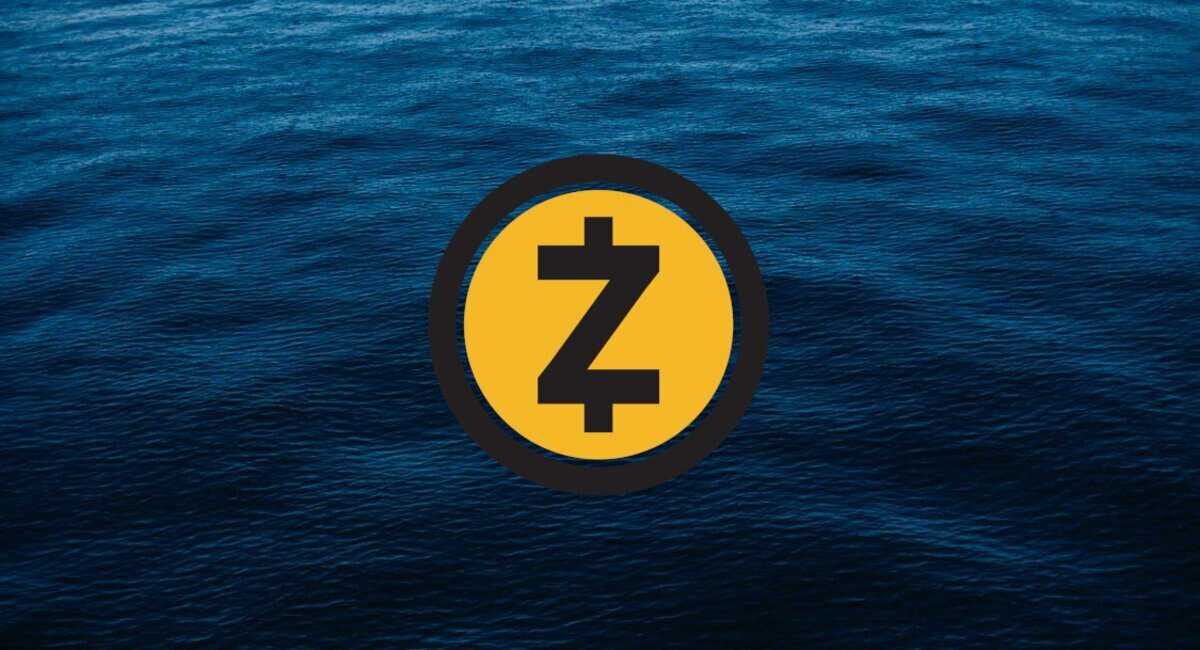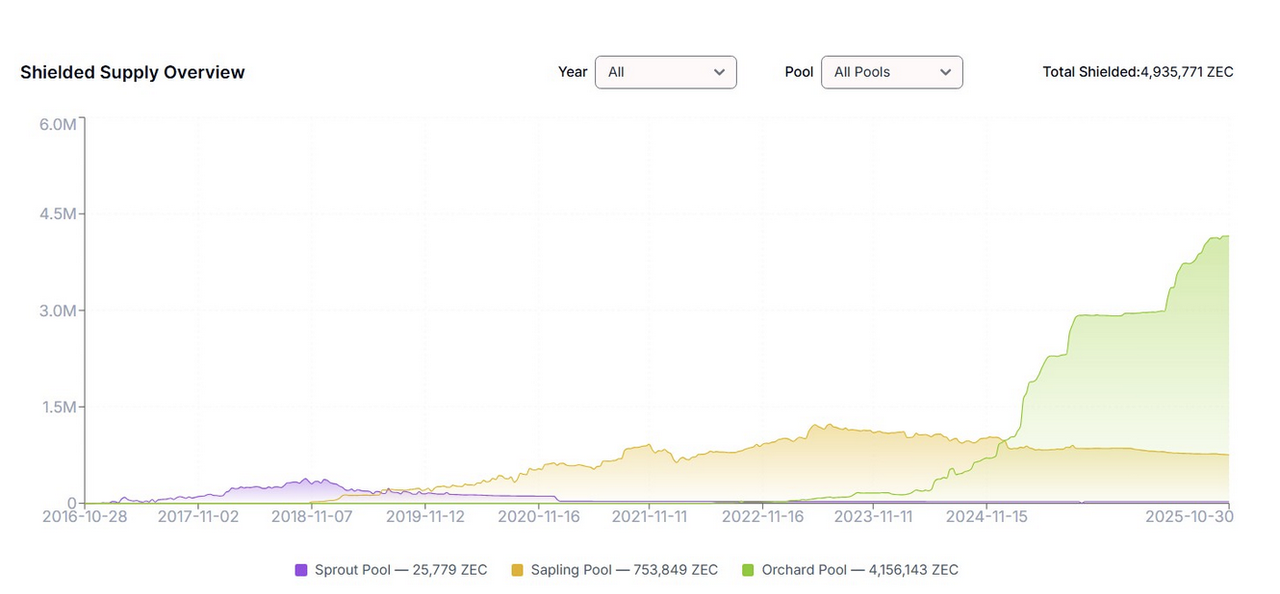Privacy Coin Revival: Black Mirror, Zcash, and the Unseen Freedom
- 核心观点:金融监控加剧催生隐私币需求。
- 关键要素:
- Zcash月内暴涨375%,市值破90亿。
- 比特币透明账本被AI强化追踪能力。
- 全球监管收紧,隐私币成避险工具。
- 市场影响:推动隐私技术发展与资产配置转移。
- 时效性标注:中期影响
Introduction: How far away is the world of Black Mirror from us?

Imagine a world where people are forced to ride stationary bikes like hamsters to earn points. This is not only their only source of income but also the energy source that keeps society running. Every pedal stroke, every drop of sweat, is converted into capital for the system. The vast majority of the points you earn are gradually devoured by advertisements on screens and consumerist inducements. You think you can resist, but you discover that even resistance becomes part of the system's data collection.
This is the digital future depicted in the popular British TV series *Black Mirror*, in the episode "Fifteen Million Points"—where people's lives are completely consumed by ubiquitous surveillance and a points system. But what if this "science fiction" world is actually only a wall away from us?
I. The Revival of Privacy Coins: Bitcoin in 2009?
In October 2025, a sudden new narrative storm swept through the cryptocurrency field. Zcash, a long-dormant privacy coin project, suddenly became the focus of the market. Its token price surged 375% in just one month, its market capitalization exceeded $9 billion, and its trading volume hit an all-time high. On social media, various KOLs and institutional analysts compared it to "Bitcoin in 2009," retail investors flocked to it, and the overall market capitalization of privacy coins accounted for 6% of the total cryptocurrency trading volume, setting a historical record.
Is the resurgence of privacy coins merely a shift in market narratives, or is smart money using real money to insure against the coming era of financial surveillance?
To understand the deeper meaning behind this, we must return to the beginning of history.
II. Domesticated Currency: Seventy Years of Financial Regulation

The Forgotten Golden Age: The Anonymous Freedom of Cash
Let's start with a silver coin.
Before the advent of the modern banking system, the essential characteristic of money was anonymity. Whether it was the gold coins of ancient Rome, the silver coins of the Middle Ages, or the paper money of the Industrial Revolution, all transactions were based on physical exchange and were inherently untraceable.
When a merchant buys bread with a silver coin, the transaction is like a secret handshake between two people—simple, private, and leaving no trace. The silver coin is perfectly "mute": it doesn't speak, doesn't record, and certainly doesn't tell anyone. Even the most powerful king cannot know the "past and present" of this silver coin.
This right to free trade has been the default setting of the monetary system for thousands of years—until a war changed everything.
Turning Point: The "Transparency Experiment" After World War II
The establishment of every empire begins with the perpetuation of a "temporary measure".
The establishment of the modern financial surveillance empire began at a unique historical moment: the post-World War II reconstruction period. Every seemingly reasonable measure was silently weaving a global surveillance network.
- The Bank Secrecy Act of 1970: The U.S. Congress passed this law requiring banks to report cash transactions exceeding $10,000. This was the first time in history that the government systematically required financial institutions to monitor their customers' transactions.
- The establishment of the FATF in 1989: The establishment of the Financial Action Task Force marked the expansion of Anti-Money Laundering (AML) and Know Your Customer (KYC) from domestic U.S. policies to global standards.
- The globalization of the SWIFT system: The Society for Worldwide Interbank Financial Telecommunication (SWIFT) has established a global financial information network that makes cross-border capital flows completely transparent.
Meanwhile, over the past 70 years, credit cards have given every transaction a "memory": banks began requiring identity verification, and governments required financial institutions to report "suspicious" transactions. Fast forward to today, and mobile payments and internet technology have pushed surveillance to breathtaking levels. Every swipe of your card and every click you make is analyzed by algorithms into a digital profile. And the central bank digital currencies (CBDCs) that various countries are promoting have built-in tracking capabilities from the very beginning.
The cost of this change was laid bare in the 2022 Canadian "Freedom Bike" protests. Those who supported the protesters had their bank accounts frozen by the government (even though they weren't convicted), preventing them from buying food, fuel, or even paying their electricity bills. A bank account, once a symbol of wealth, became an "electronic shackle" in the digital age. This wasn't happening in a distant authoritarian state, but a reality in a Western democracy.
When your money is fully digital and fully traceable, you lose your economic freedom. Bank accounts are no longer property, but a privilege that the government can revoke at any time.
The demise of financial privacy did not happen overnight, but rather is the result of 70 years of gradual, insidious change.
III. The Trap of Transparency: Bitcoin's "New Clothes" and the Big Brother of the AI Era

Bitcoin's "Transparent New Clothes"
Ironically, when Bitcoin was born in 2009, many people thought its decentralized nature would restore anonymity to financial transactions. Reality, however, proved unexpected—Bitcoin's transparent ledger provided unprecedented convenience for surveillance.
In October 2025, the U.S. Department of Justice seized 127,000 bitcoins from Cambodia. This action swiftly revealed the truth: the public record of the blockchain allows governments to trace the flow of every single bitcoin as easily as turning the pages of a book. As long as an on-chain address is linked to a real-world identity (e.g., through KYC verification at an exchange), the entire transaction history can be fully reconstructed.
People suddenly realized that even the most "decentralized" Bitcoin could be completely transparent to governments. Every transaction is recorded on the blockchain, and every address can potentially be traced back to its real identity. This "transparency" might be an advantage in criminal investigations, but for ordinary users, it's a privacy nightmare.
It's like thinking you're wearing a new outfit called "decentralization," only to find out it's transparent.
Big Brother of the AI Era

If traditional bank surveillance is a form of manual review, then the combination of blockchain analytics and artificial intelligence pushes surveillance capabilities to their limits, foreshadowing the coming of an even more chilling era.
Since 2025, a well-known blockchain analytics tool has been extensively using AI technology. These "digital detectives" can not only automatically identify wallet behavior patterns and associate IP addresses, but also predict the next flow of funds. It's like installing a private detective that doesn't rest 24/7 for every wallet address.
Even more frightening is that these AI tools can not only see what you've done, but also guess what you're going to do. They analyze trading history, generate "risk profiles," and then label you before you even take any action.
Chainalysis' CEO once boldly predicted that within the next five years, AI would be able to regulate all cryptocurrency transactions. These AI agents can not only "solve cases" but also track cryptocurrency tax evaders. Although he stated that those who cashed out their crypto assets five years ago or more might have "escaped unscathed," the IRS and other tax agencies are now widely using AI to track potential tax evasion. 
*Regarding cryptocurrency taxation: In the United States, the United Kingdom, and Germany, filing cryptocurrency tax returns has become a mandatory requirement.
This means that the transparent ledger of cryptocurrencies, powered by AI, will become the most powerful surveillance tool in human history. In a blockchain world where transparency is assumed, this automated, large-scale surveillance will cause the space for anonymity to shrink at a visible rate. This fear is the real catalyst for the explosive demand for privacy coins in 2025.
Comprehensive financial surveillance
The "electronic ankle bracelet" of the financial system is just the beginning. Surveillance logic is expanding from the financial sector to every corner of life:
- The privacy coin crackdown (since 2023): Over 70 delisting incidents on global exchanges.
- US SAR Enhancement (Starting in 2025): Treasury Department Strengthens Reporting Requirements for Suspicious Activity on Crypto Assets
- EU ban on privacy coins (effective July 1, 2027): Privacy coins are classified as "anonymity-enhanced crypto assets" and are completely banned.
- Meta Data Recovery (from April 14, 2025): Resumption of training AI models using publicly available data from European users.
- The EU's CSAR proposal on "chat control" requires messaging clients to forcibly scan all communication content (including encrypted messages).
As digital privacy enters its final countdown and anonymity is gradually stripped away, the market has developed an almost instinctive, panic-driven demand for any asset that can provide "untraceability."
IV. Privacy Coins' Counterattack: Lifeboats in the Crypto Ocean

The importance of privacy becomes increasingly apparent until AI technology makes every crypto transaction transparent. Privacy is not only a weapon against "digital Big Brother," but also the last line of defense for preserving financial freedom and privacy for ordinary people.
Therefore, privacy-focused cryptocurrencies offer a way to return to normalcy.
It enables direct, permissionless transactions between individuals, without the need for identity verification or centralized oversight. In essence, it's a digital return to the services once provided by coins and cash.
Behind Zcash's explosive popularity: its technological moat
Why did Zcash become so popular? It's because Zcash shares some key fundamental elements with Bitcoin—fixed supply and a Proof-of-Work consensus mechanism.
But it adds a crucial layer of privacy protection: masked addresses—using zero-knowledge proofs (zk-SNARKs) to hide the sender, receiver, and transaction amount. Transactions between masked addresses go into a pool to hold private transaction tokens. As the pool grows, the network's anonymity set expands, enhancing privacy for all users.
The protected pool has now reached its largest size ever, approaching 4.9 million ZEC.

Shielded Zcash supply is approaching 30%. Source: Zechub
The founder of DeFi platform TYMIO stated publicly, "With increasingly stringent global regulations and exchanges being required to report wallet ownership to tax authorities starting in 2026, privacy has become one of the most pressing issues in the cryptocurrency space." He also noted, "Some large players have begun converting some of their Bitcoin holdings into Zcash."
The resurgence of privacy coins like Zcash is actually a panic-driven hedge against political risks in the market.
KOLs' influence: The next Bitcoin?

Source: @gazza_jenks
However, technological advantages alone are insufficient to explain Zcash's explosive growth. Behind this privacy coin revival, a group of the most influential voices in the crypto world are collectively advocating for it. Opinion leaders such as Arthur Hayes and Naval Ravikant have been consistently promoting Zcash's privacy-first advantages for months and making optimistic price predictions. This collective support has not only driven ZEC's excess returns but also strengthened the privacy coin narrative.
As Ran Neuner, host of the YouTube channel Crypto Banter, put it, the South African broadcaster and entrepreneur described Zcash as "the most exciting thing in the cryptocurrency space right now" and compared it to the early adoption of Bitcoin from 2009 to 2017.
"What makes Bitcoin special is twofold. The most brilliant cypherpunks on Earth, these extreme libertarians, have united and organized themselves around a common goal: to create a private currency that allows for peer-to-peer transfers anywhere in the world without government intervention."
"...This time, cypherpunks have come together to fight for privacy, which is precisely what Bitcoin is missing."
V. Conclusion: The Last Line of Defense for Freedom
Anthropologists have long told us that privacy is a basic human need, as important as food and sleep. We need a private space where we are not observed or judged.
This is not because we have any shameful secrets, but because constant surveillance fundamentally changes our behavior.
When you know that every transaction is recorded, analyzed, and judged, you begin to self-censor—not donating to controversial charities, not buying "sensitive" books, and not supporting "inappropriate" political candidates.
This is what economists call the "chilling effect"—surveillance doesn't need to actually punish you; just letting you know you're being monitored is enough to change your behavior. It's like an invisible cage; you can't see the bars, but you can never get out.
As digital surveillance becomes ubiquitous and financial privacy is gradually stripped away, any asset that offers "untraceability" will be repriced.
After all, once the financial system truly becomes an all-knowing surveillance machine, everyone's life will never be the same again.
“The right to be let alone — the most comprehensive of rights, and the right most valued by civilized men.”



